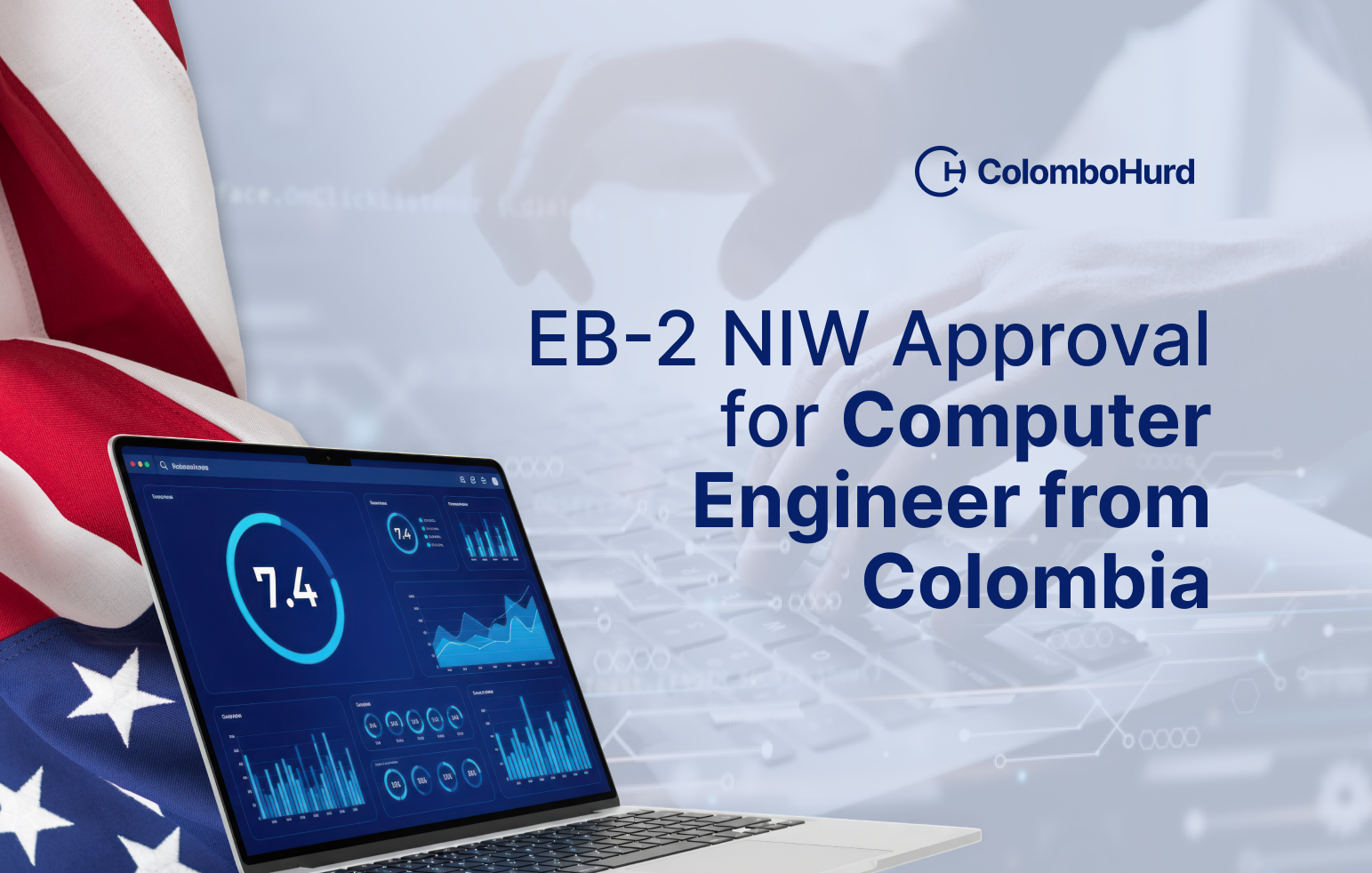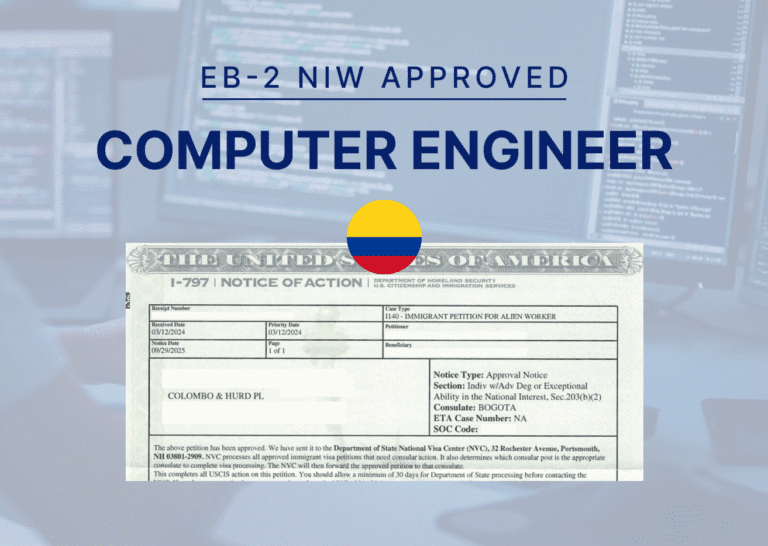Computing Engineer
Cloud architecture has become a strategic advantage for U.S. companies. Experts who design and implement large-scale cloud systems play a role in driving innovation and economic growth.
This case study highlights how a Colombian cloud architect specializing in enterprise cloud transformation overcame a Request for Evidence (RFE) and secured an EB-2 National Interest Waiver (NIW) approval. His expertise in optimizing digital infrastructure enables businesses to enhance efficiency, scalability, and security through advanced cloud strategies.
With representation from attorneys Vivian Daher and Kristal Sanchez of Colombo & Hurd, he demonstrated that his contributions align with U.S. priorities in digital modernization and cybersecurity resilience. As a result, his EB-2 NIW petition was approved, affirming the significant impact of his work on the nation’s technological and economic progress.

A Career Built on Cloud Innovation
The client is a computer engineer with nearly a decade of experience in cloud architecture and digital infrastructure. With a background in enterprise technology, he has led complex cloud transformation projects that help businesses operate more efficiently in today’s digital economy.
His work focuses on designing scalable cloud systems that improve performance, reduce costs, and strengthen data security. He has helped organizations modernize outdated systems, migrate to the cloud, and build long-term technology strategies. A significant part of his impact has been with small and mid-sized enterprises (SMEs), giving growing companies access to advanced cloud capabilities typically used by large corporations.
A key strength in his career is his ability to make complex technology accessible to business leaders and decision-makers. As Attorney Kristal Sanchez noted, “Cloud architecture can be highly technical, but we showed how his work drives business growth and innovation. Once the impact was clear, the officer understood why it matters at a national level.”
Translating Technical Mastery Into National Interest
Even though the client had a strong record in cloud architecture, USCIS issued an RFE that challenged all three EB-2 NIW prongs: the national importance of his work, his ability to advance his proposed endeavor, and whether a waiver of the job offer requirement would benefit the United States.
USCIS needed a clearer explanation of why his cloud modernization work matters to the United States and how it impacts the economy, innovation, and digital security, not just the companies he worked with.
The main challenge was translating his highly technical contributions into terms that immigration officers, who may not have a technology background, could easily understand. The response needed to connect his work to national priorities like digital modernization and economic competitiveness.
“The RFE pushed us to simplify the message without losing its substance,” said Attorney Kristal Sanchez. “We focused on real outcomes, showing how his work helps U.S. SMEs grow and operate securely, to show why it serves the national interest.”
See if you qualify
Get your free EB-2 NIW visa profile evaluation today.
Building a Clear, Cohesive Case Through Collaboration
The legal strategy centered on clarity and collaboration. The initial filing team and RFE team worked together seamlessly, aligning arguments and refining the narrative so USCIS could clearly understand the client’s impact. The attorneys also worked closely with the client to turn complex technical examples into plain, outcome-focused explanations that demonstrated real value to U.S. industry.
“Collaboration between teams, and with the client, allowed us to keep the message strong and consistent throughout the case,” explained attorney Kristal Sanchez.
The response highlighted three core areas of impact. First, it showed how he drives technological growth through cloud modernization projects that improve system reliability and performance for growing businesses. Second, it demonstrated leadership and collaboration, supported by strong recommendation letters that described how he mentors engineering teams and promotes innovation in cloud adoption. Finally, the strategy emphasized economic relevance, showing how his contributions help small and mid-sized businesses reduce infrastructure costs, strengthen digital security, and remain competitive in a global market.
“We emphasized his impact on SMEs because that connection to U.S. economic growth matters,” added Attorney Sanchez. “He isn’t just working in cloud computing; he’s helping American businesses modernize and scale.”
By aligning the evidence with these themes, the attorneys presented a filing that was persuasive, cohesive, and easy for the officer to follow, without unnecessary technical jargon.
EB-2 NIW Approval After RFE Response
The petition was approved after a well-structured response to the RFE. USCIS acknowledged the national relevance of the client’s work and his ability to continue advancing cloud modernization in the United States. The approval confirmed that his contributions support U.S. economic development and technological resilience, meeting the criteria of the EB-2 National Interest Waiver.
“There’s a deep reward in seeing the officer recognize a client’s value,” said Attorney Kristal Sanchez. “We showed his experience and contributions honestly, and USCIS agreed. It changes not just his career, but his life, and being part of that journey is meaningful.”
“Being part of life-changing moments like this is deeply meaningful. Our team believed in his case from the beginning, and working together, across filing and RFE stages, allowed us to build a powerful narrative that USCIS could understand.”


